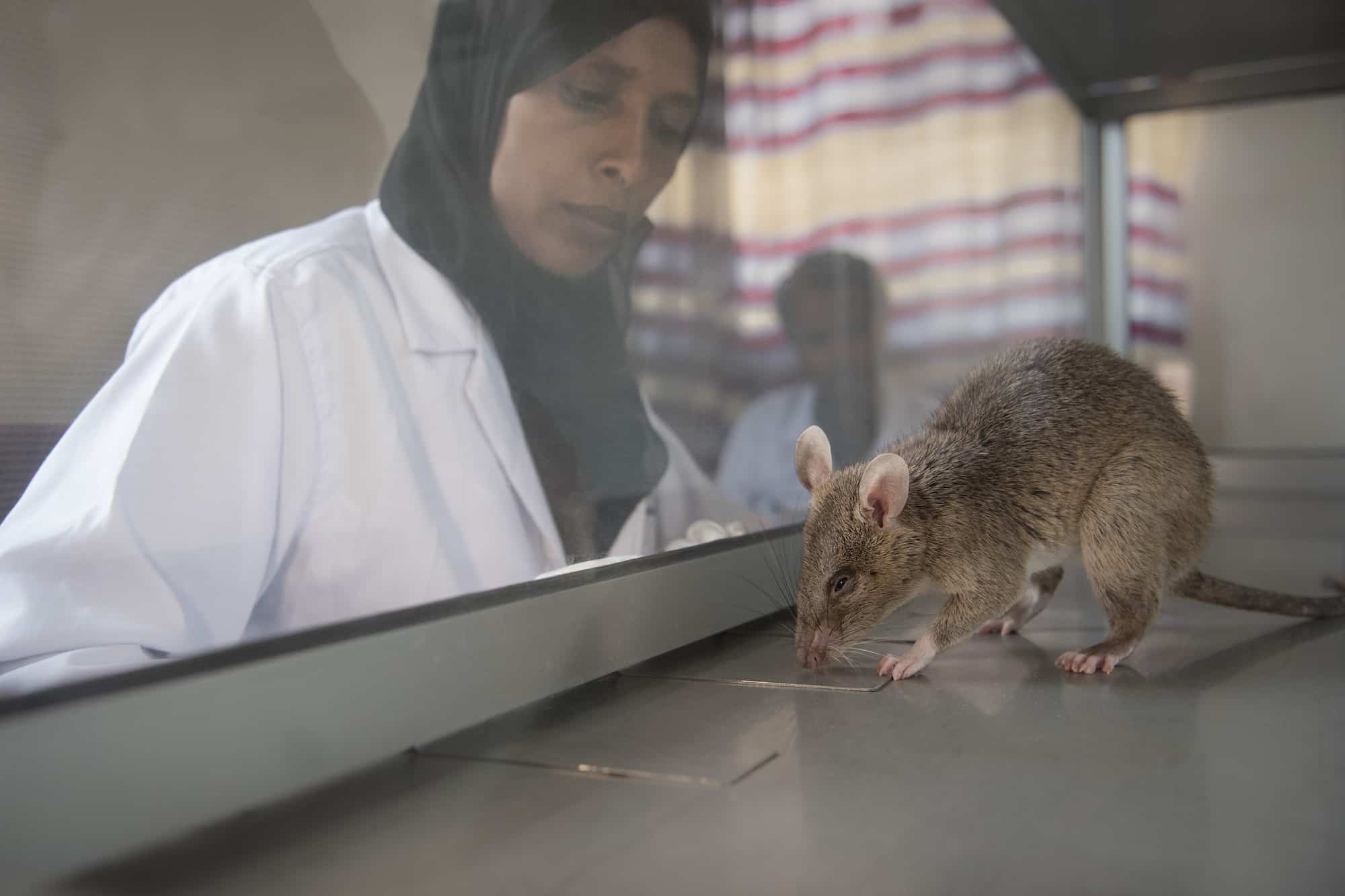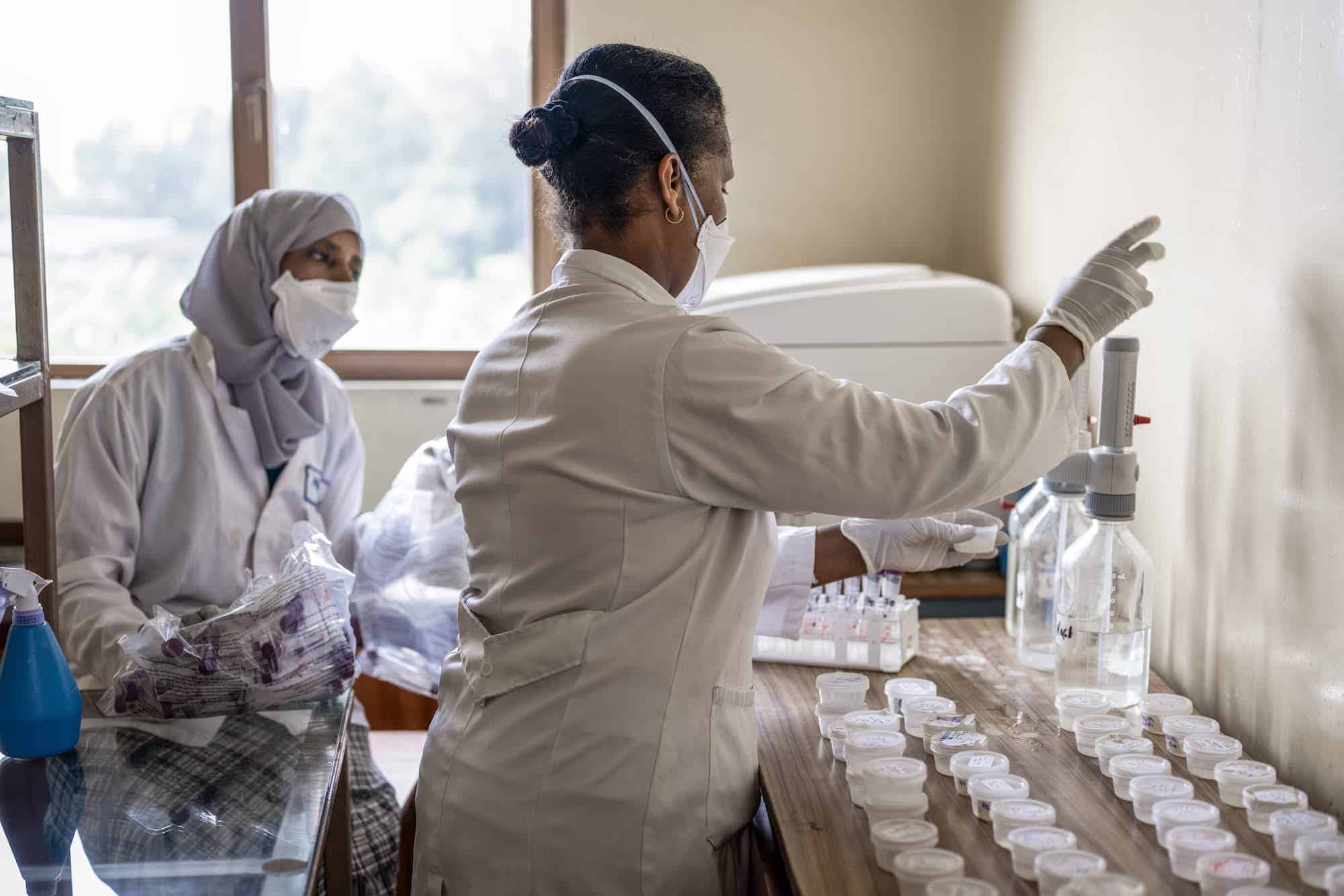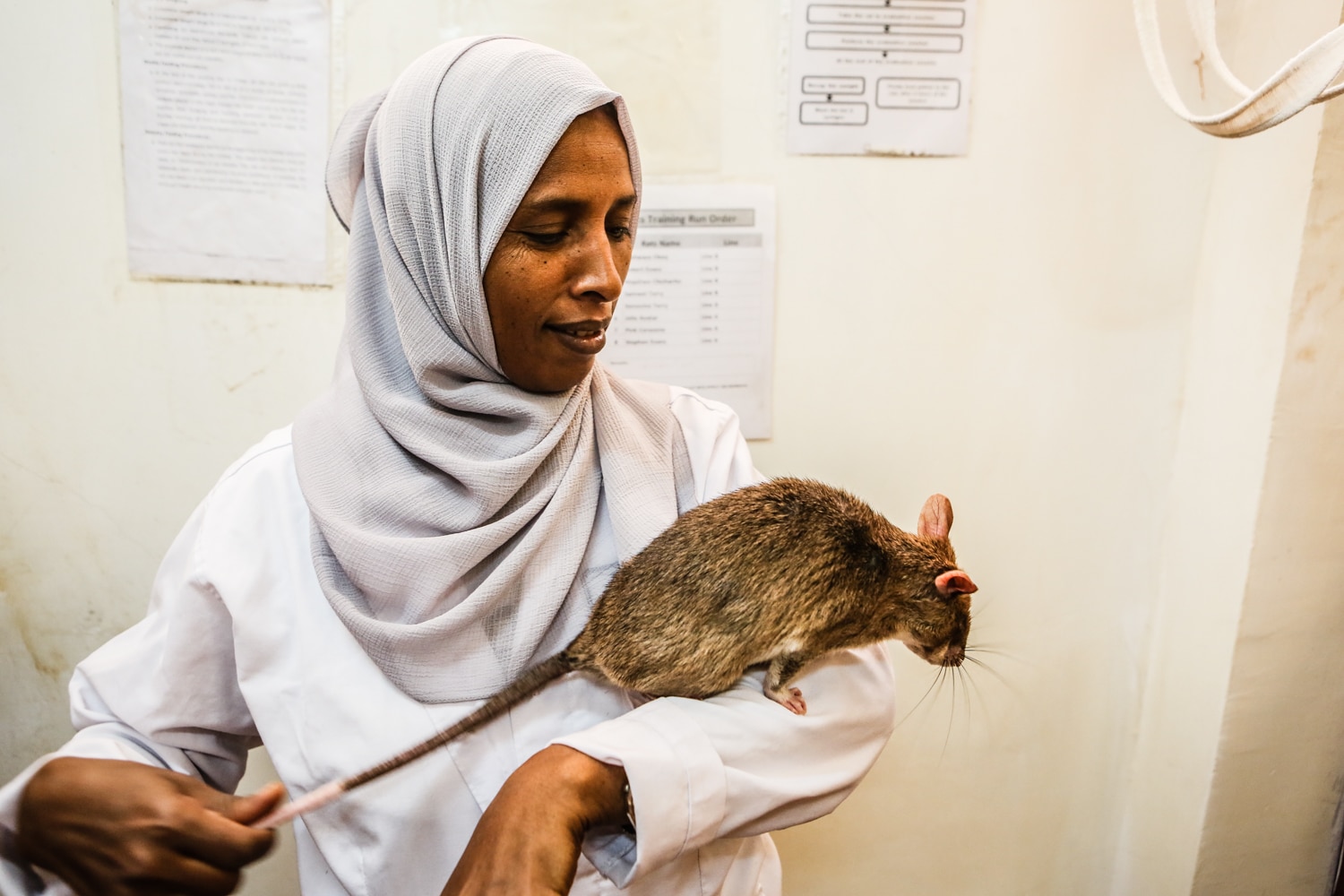Humans of APOPO: Hajera’s Life and Work with APOPO’s TB Detection Program
Hajera has been part of APOPO’s TB detection team in Ethiopia since 2017. Originally from Mizan Teferi, she has lived in Addis Ababa for nearly 30 years. A trained laboratory technician and mother of four, she brings dedication and expertise to her role and she’s proud to be part of a team that’s using innovative science to serve the community.
“Before joining APOPO, I worked in a private clinic as a lab technician. I started in the field as a lab assistant, and I was drawn in by the work. It was that early experience that made me want to study laboratory technology.
I heard about APOPO through a relative who was doing his master’s thesis at the Armauer Hansen Research Institute (AHRI). He told me there was a vacancy and encouraged me to apply. When I saw the rats in a video for the first time, it was scary. But I got used to the idea. I went to Morogoro, Tanzania, for training. It was my first time traveling abroad, and I had to leave my one-year-old child behind. That was a very difficult time for me.

The training was very useful. I started out as a rat handler, but at one point the project had budget issues and two lab staff had to be let go. Later, when the situation improved and a lab position opened, the manager suggested I transition into that role. Now, I work in the lab and am currently assigned to GeneXpert analysis. We rotate between different tasks including sample reception, preparing samples for the rats, and confirmation analysis. I don’t have a preference. Each part of the process is important.
My favorite rats were Joly and Samuel. Joly was polite and smart, and Samuel was very accurate. The rats are fast, active, and sharp. We also treat them with great care and follow our standard procedures carefully.

In a lab like ours, analyzing 100 samples can take up to six hours. In a general lab, it might take up to three days. GeneXpert detects DNA, while microscopy identifies the entire bacteria. GeneXpert is more expensive and requires a stable power supply. Recently, we lost 11 cartridges due to a power interruption — that’s about US$110 gone. This shows why rat detection is important where power supplies are not stable. For better use of GeneXpert, I suggest prioritizing children, older people, and immunocompromised patients.
My day starts early. I wake up at 5:00 to prepare breakfast and a lunch box for my kids. If I take the blue bus, I have to leave by 6:30. I usually return home and cook until 10:00 or even 11:00 at night. It’s a full day, but I manage.
When I tell people I work with rats, they’re curious. They ask how it works, and I explain our process. My family is proud of what I do — they’ve even seen our work on TV.
Like any parent, I want my kids to get a better education and life. I have a diploma, and I still hope to continue to a degree level, though the opportunity hasn’t come yet. I believe APOPO is doing something very special for the community. If we get more funding, we could reach more people, especially in the regions.
I’m proud of my work and grateful to be part of this team. I hope we can continue to find more TB cases, expand our reach, and keep growing.”

